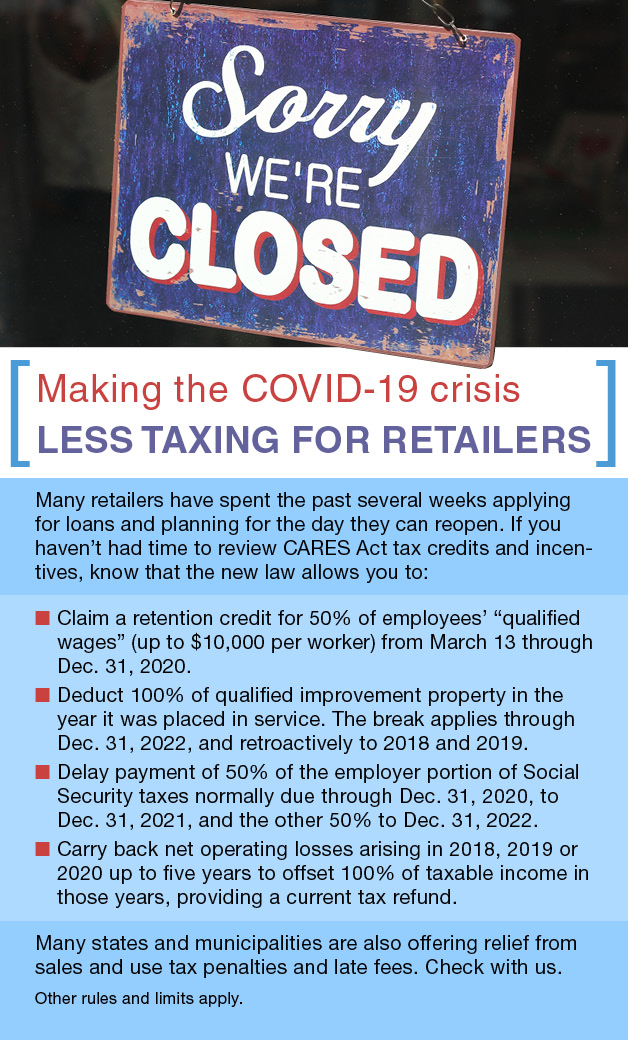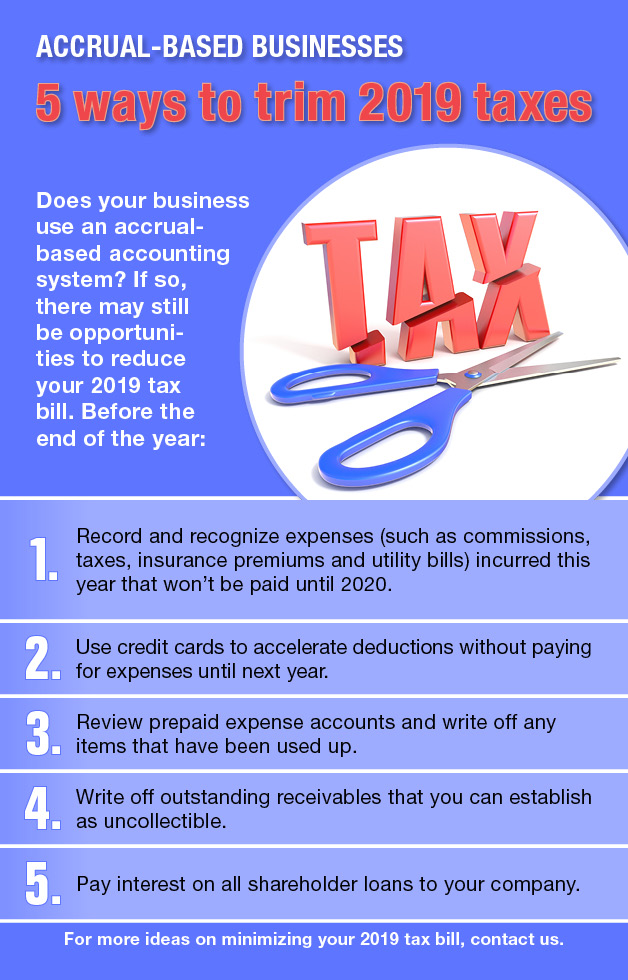

If you have a life insurance policy, you probably want to make sure that the life insurance benefits your family will receive after your death won’t be included in your estate. That way, the benefits won’t be subject to the federal estate tax.
Continue Reading: Why you should keep life insurance out of your estate

Technology has made it easier to work from home so lots of people now commute each morning to an office down the hall. However, just because you have a home office space doesn’t mean you can deduct expenses associated with it.
Continue Reading: Your home office expenses may be tax deductible


If you’re self-employed and don’t have withholding from paychecks, you probably have to make estimated tax payments. These payments must be sent to the IRS on a quarterly basis. The third 2019 estimated tax payment deadline for individuals is Monday, September 16. Even if you do have some withholding from paychecks or payments you receive, you may still have to make estimated payments if you receive other types of income such as Social Security, prizes, rent, interest, and dividends.
Continue Reading: The next estimated tax deadline is September 16: Do you have to make a payment?

It’s not just businesses that can deduct vehicle-related expenses. Individuals also can deduct them in certain circumstances. Unfortunately, the Tax Cuts and Jobs Act (TCJA) might reduce your deduction compared to what you claimed on your 2017 return.
Continue Reading: Vehicle-Expense Deduction Ins and Outs for Individual Taxpayers

Incentive stock options (ISOs) are a popular form of compensation for executives and other employees of corporations. They allow you to buy company stock in the future at a fixed price equal to or greater than the stock’s fair market value on the ISO grant date. If the stock appreciates, you can buy shares at a price below what they’re then trading for. But careful tax planning is required because of the complex rules that apply.
Continue Reading: Careful Tax Planning Required for Incentive Stock Options

Working from home has become commonplace. But just because you have a home office space doesn’t mean you can deduct expenses associated with it. And for 2018, even fewer taxpayers will be eligible for a home office deduction.
Changes under the TCJA
For employees, home office expenses are a miscellaneous itemized deduction. For 2017, this means you’ll enjoy a tax benefit only if these expenses plus your other miscellaneous itemized expenses (such as unreimbursed work-related travel, certain professional fees and investment expenses) exceed 2% of your adjusted gross income.
For 2018 through 2025, this means that, if you’re an employee, you won’t be able to deduct any home office expenses. Why? The Tax Cuts and Jobs Act (TCJA) suspends miscellaneous itemized deductions subject to the 2% floor for this period.
If, however, you’re self-employed, you can deduct eligible home office expenses against your self-employment income. Therefore, the deduction will still be available to you for 2018 through 2025.
Other eligibility requirements
If you’re an employee, your use of your home office must be for your employer’s convenience, not just your own. If you’re self-employed, generally your home office must be your principal place of business, though there are exceptions.
Whether you’re an employee or self-employed, the space must be used regularly (not just occasionally) and exclusively for business purposes. If, for example, your home office is also a guest bedroom or your children do their homework there, you can’t deduct the expenses associated with that space.
2 deduction options
If you’re eligible, the home office deduction can be a valuable tax break. You have two options for the deduction:
More rules and limits
Be aware that we’ve covered only a few of the rules and limits here. If you think you may be eligible for the home office deduction on your 2017 return or would like to know if there’s anything additional you need to do to be eligible on your 2018 return, contact us.
